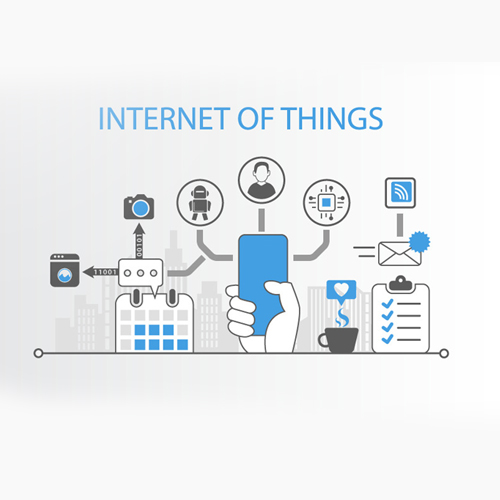
The internet of things (IoT) is a system of interrelated computing devices, mechanical and digital machines, objects, animals or people that are provided with unique identifiers (UIDs) and the ability to transfer data over a network without requiring human-to-human or human-to-computer interaction, as defined by techtarget.com.
As described by techtarget.com, a thing in the internet of things can be a person with a heart monitor implant, a farm with a biochip transponder, an automobile that has built-in sensors to alert the driver when tire pressure is low or any other natural or man-made object that can be assigned an Internet Protocol (IP) address and is able to transfer data over a network.
Needless to say, IoT is affecting many aspects of our everyday lives. And nordic-it.com is anticipating that this will soon impact almost everything we do.
Here’s a list of our suggestions to somehow manage your use of technology:
-
Smart Home
We’re spending more time at home now because of the pandemic. Thus, more appreciation of the place we stay – including the possibilities of being integrated with IoT. Some of the sample scenarios are described by ics.ie. They imagine an intelligent house, programmed to save energy and make your life a more convenient one. Alarm clocks will be synced with traffic apps; heating systems will be synced with external temperature sensors, which will be synced with cost evaluations; lighting will react as we enter a room, as might our coffee makers. It all sounds so alien to us, but there are plenty such homes that already exist.
-
Daily Commute
For years now, pandemic is conditioning us to stay at home more frequently. But still, there are days that we should go out – may it be for personal reasons or some work related duties. We can’t totally eradicate driving and commuting.
Ic.ie gives some sample circumstances of this. Imagine you left your home without your house key - your house would tell you this. Our cars will anticipate our approach and open themselves via a sensor in our phones. Intelligent traffic detection will allow our device to direct us to the shortest route to work/ home. Taxi services for business meetings will be planned according to your calendar - synced with your smartphone. -
Health Care
IoT will develop solutions where wearable technologies can help reduce cost and improve security and quality in patient care. As per an article published by Nordic-it.com – based on data-capturing sensors and RFID chips, IoT solutions will enable advanced control of hospital resources, process optimization in patient care and smart asset management. Also outside the hospital, IoT in health care will increase significantly. For example, when a prescription is running low, an appointment will be made with your physician through automatic notification. In this way, doctors will also be kept informed with when and how often their patients are taking their medicine. Added the said site – with the help of IoT, patients with ongoing health issues will be able to have things such as their sugar levels and blood pressure monitored remotely.
-
Wearable Technology
From our homes to driving and daily commute, IoT affects us in many ways. Nordic-it.com also included gadgets that we can wear.
From monitoring sleeping patterns and hearing aids, to tracking activity and progress during workouts, the devices we wear are becoming a lot more sophisticated. They can connect to our social media accounts and track data that can be used to analyze various behaviors and help us improve our lives. -
Energy Consumption
With all the talks about technology, we should also be talking about its electricity consumption and its effects on the environment. And this is one of the area that IoT can positively impact our lives.
Nordic.it.com listed some samples of these IoT assistance. High-energy consumption household appliances will adjust based on dynamic price signals to lower your electric bill. The lighting and thermostats in your house will be able to learn your personal habits in order to create the optimal setting – based on your daily lifestyle. For example, making sure your house is the ideal temperature before you return home. Additionally, these smart devices will also sense when no one is home and thereby turn off appliances automatically to reduce costs and wastes.
Sources:
https://www.techtarget.com/iotagenda/definition/Internet-of-Things-IoT
https://nordic-it.com/iot-impact/#:~:text=From%20monitoring%20sleeping%20patterns%20and,help%20us%20improve%20our%20lives.
https://www.ics.ie/news/view/1729
